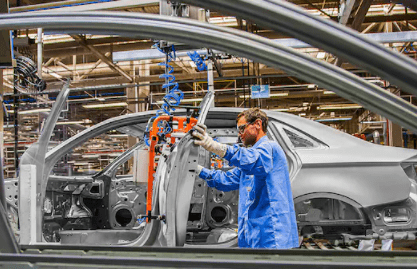Mexico‘s Secretary of Economy, Raquel Buenrostro, informed that the ruling on the automotive panel between the members of the Mexico-U.S.-Canada Agreement (USMCA) will be announced in December.
The USMCA essential parts requirement is currently subject to a dispute settlement procedure under Chapter 31 of the USMCA.
Mexico and Canada requested consultations in August 2021 and formally requested a panel on January 6, 2022.
Canada and Mexico then filed their initial briefs in March 2022, and the United States (as respondent) filed its brief in May 2022.
In the dispute on this issue, Canada and Mexico have taken the position that if an essential auto part qualifies as originating under the flexibilities provided by the essential auto part origin requirement, then the value of the basic part is considered 100% originating, when calculating the overall Regional Value Content (RVC) of the vehicle.
In the U.S. view, the text of the USMCA does not support the Canadian and Mexican interpretation.
The U.S. position is that the core parts requirement and the overall vehicle RVC requirement are separate and distinct requirements that a vehicle must meet (in addition to the Labor Content Value -LCLV- and steel and aluminum purchase requirements) in order to receive preferential treatment under the T-MEC.
Automotive panel
The Mexican Automotive Industry Association (AMIA), chaired by José Zozaya, is confident that the ruling will be in favor of Mexico and Canada, meaning that the seven essential parts that make up a car: engine, steering, suspension, axles, chassis, transmission and lithium batteries, must be 75% manufactured in North America in order to enjoy tariff preferences.
Several interested parties addressed the essential parts dispute in their public comments to USTR.
U.S. labor organizations expressed support for the U.S. interpretation of the essential parts requirement.
The vehicle producer associations generally agreed with the Canadian and Mexican interpretation of the basic parts requirement.
Several stakeholders expressed their desire to see a resolution of the dispute that would provide greater certainty and clarity to the base parts requirement.
![]()

